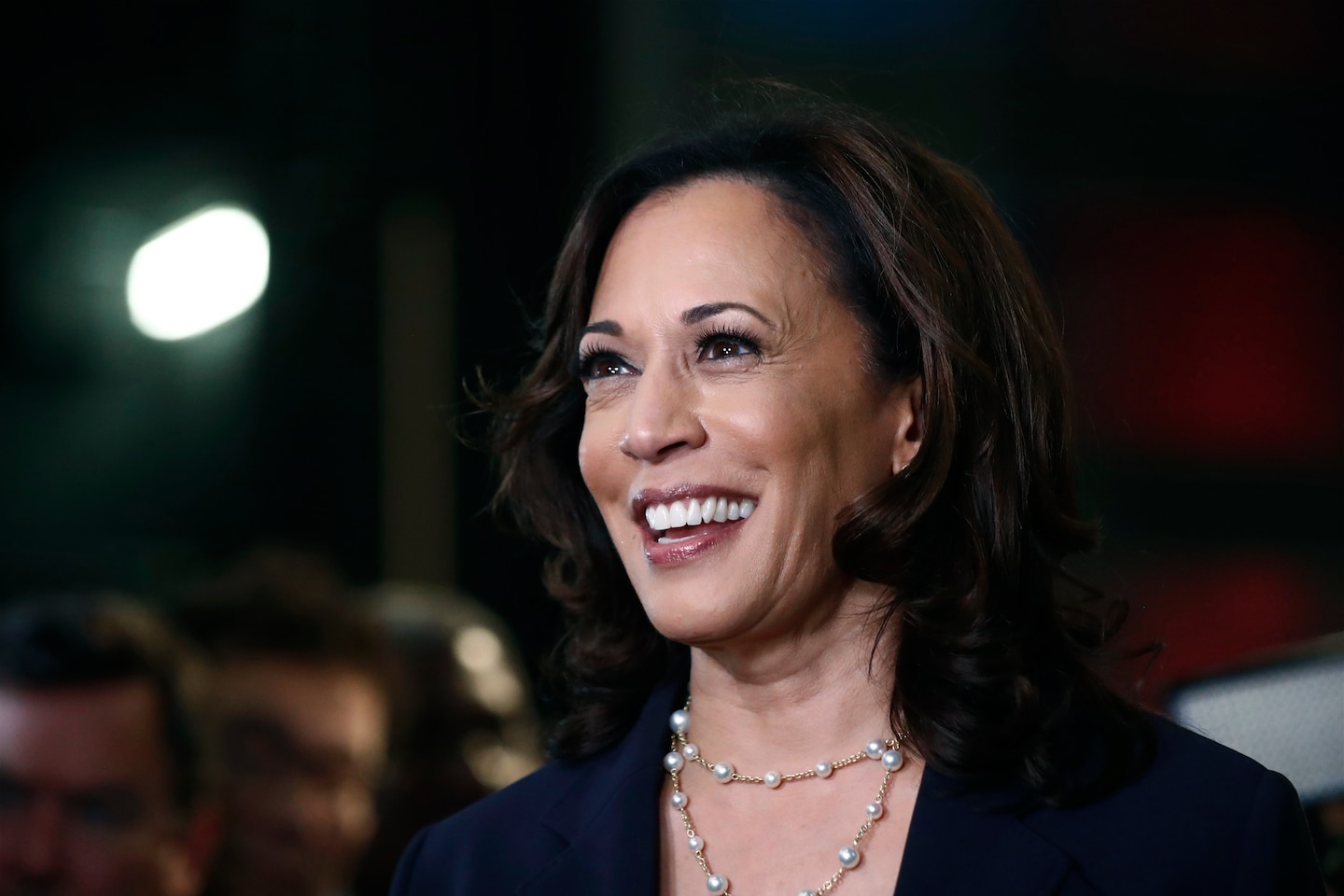America is about to see what smart Republicans saw in Kamala Harris years ago

It’s facile to compare Harris to former president Barack Obama, though the two are friends. Harris, 55, is the daughter of two academics, a mother from India and a father from Jamaica, who separated when she was 5. Harris and her younger sister were raised primarily by their mom.
She was an early fundraiser for Obama when he first ran for U.S. Senate in 2004. Three years later, she was quick to endorse his presidential candidacy when others in the party held back. Like Obama, Harris navigated her way through a swampy city filled with sharp-elbowed politicians. The shrewdest one of all, Willie Brown, the former San Francisco mayor and speaker of the California Assembly, helped out.
I was in the union hall near Fisherman’s Wharf covering the Brown for Mayor victory party in 1995, when Harris, then a 31-year-old deputy district attorney from Alameda County across the bay from San Francisco, presented Brown with a baseball cap emblazoned with the words “Da Mayor.”
Brown beamed. (The two were an item at the time. It didn’t last. She married Los Angeles attorney Douglas Emhoff in 2014.) In 2002 and 2003, Brown, ever loyal to his friends, encouraged Harris, by then a deputy San Francisco city attorney, to challenge San Francisco District Attorney Terence Hallinan, a former boss.
She placed her campaign office in the Bayview District, a gritty part of the city, and set up ironing boards (a common campaign tactic in the Bay Area), often with help from her mother, Shyamala Gopalan, a breast cancer researcher at the University of California at Berkeley who died in 2009.
The image of being one with the people helped. What helped more was that she tapped into Brown’s donors: Pritzkers of the Hyatt hotel-chain wealth, Getty oil-fortune heirs, Charles Schwab from the finance company that bears his name, and the Fisher family of Gap fame, her first campaign finance reports showed.
Harris promised to be a progressive and competent prosecutor who would oppose the death penalty. She won with more votes than any other San Francisco candidate that year, including another Brown-backed rising star, Gavin Newsom, who was elected mayor at the same time.
On April 10, 2004, the night before Easter and three months after she was sworn in, San Francisco Police Officer Isaac Espinoza was patrolling the Bayview district. He told David Hill to stop. Hill answered with an AK-47, killing Espinoza and wounding his partner.
Three days later, before Espinoza was laid to rest, Harris announced she would not seek the death penalty against Hill. The San Francisco police officers union was enraged.
A jury convicted Hill of second-degree murder and intentionally killing a police officer, for which he was sentenced to life in prison without parole, but the political fallout for Harris remained.
Harris won a second term in 2007, and in 2008 announced her next step, a run for California attorney general. Police unions lined up behind her Republican opponent, the far more experienced Los Angeles County district attorney, Steve Cooley, 19 years her senior.
In the closing weeks of the campaign, a political action committee run by Ed Gillespie, who had been Republican National Committee chair under President George W. Bush, spent $1 million-plus on an ad featuring Espinoza’s mother bashing Harris for refusing to seek the death penalty against her son’s killer.
The ad had two goals: to elect Cooley, a Republican, and to defeat a Democratic star before she could rise: “If that is a byproduct of defeating her, we’re perfectly happy with that,” the committee’s spokesman told me at the time.
Harris answered by turning to her friend the president. Obama headlined a fundraiser for Harris in Atherton, near San Jose, and a rally in Los Angeles.
As Biden knows, Harris can verbally eviscerate an opponent. At a debate at the UC-Davis law school, a reporter moderating the event asked Cooley whether, if elected, he would take his pension from his decades of service as a Los Angeles County prosecutor. It was to be a six-figure sum.
“I’ve definitely earned any pension rights I have,” Cooley said.
Harris saw the answer for what it was, a blunder. She replied with a knowing laugh, “Go for it, Steve. You’ve earned it; there’s no question.” Her campaign turned the exchange into a withering campaign ad that aired in Cooley’s base, the L.A. basin.
On election night 2010, as the tea party swept to victory elsewhere, Cooley declared victory and the San Francisco Chronicle jumped the gun, running an online headline: “Cooley beats Harris to win attorney general race.”
Now, even bigger things await. And Republicans are running out of chances to stop her.
Read more:






